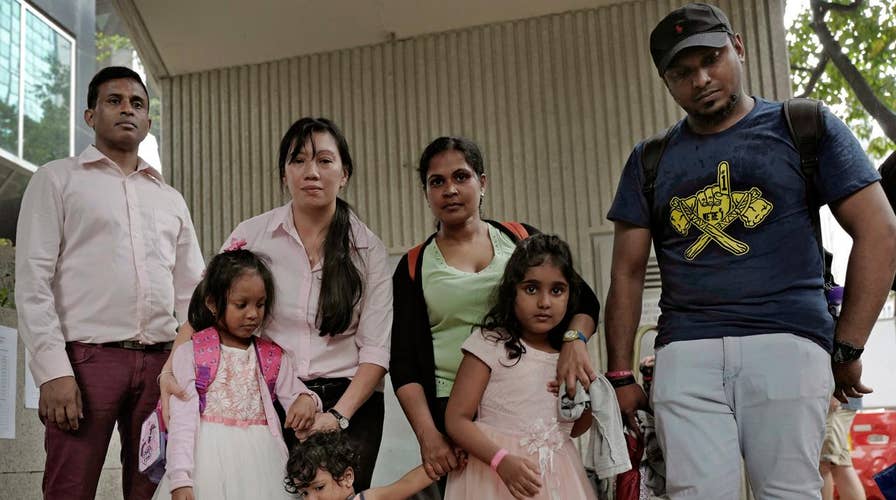Asylum denied to family who sheltered Snowden in 2013
Group faces deportation from Hong Kong, lawyer calls the decision 'retaliation' for helping Snowden
Hong Kong authorities have rejected asylum requests from refugees who harbored whistleblower and former National Security Agency (NSA) contractor Edward Snowden in 2013.
Applications from four adults and three children from Sri Lanka and the Philippines were denied by immigration officials in the southern Chinese city, attorney Robert Tibbo said Monday.
Snowden spent two weeks hiding in Hong Kong in June 2013 after he leaked documents revealing extensive U.S. government surveillance information.
The refugees include former Sri Lankan soldier Ajith Pushpakumara; Vanessa Mae Rodel, who is from the Philippines and has a 5-year-old daughter; and a Sri Lankan couple, Supun Thilina Kellapatha and Nadeeka Dilrukshi Nonis, and their two children.
"I'm an army deserter person," Pushpakumara said, adding that if he returned to Sri Lanka, "I will be tortured again. I don't want to be tortured."
Tibbo said his clients will appeal the ruling, which leaves them at risk of being detained or deported to their home countries. They have two weeks to appeal, BBC reported on Monday. They have also applied for refugee status in Canada.
CHELSEA MANNING TO REMAIN IN ARMY, RECEIVE HEALTH CARE BENEFITS AFTER PRISON RELEASE
Tibbo represents 50 to 60 other clients who are applying for asylum in Hong Kong, where cases typically take years to be processed, he said. So far only these cases have received a speedy decision from immigration officials -- issued last Thursday -- in a sign they have been targeted by authorities, he claimed.
The Hong Kong government "has repeatedly tried to question the four adults about their involvement with Mr. Snowden," Tibbo said. He claimed that when the refugees refused to answer, their social assistance payments for rent and food were cut off.
SENATORS SEEK DATA ON AMERICANS CAUGHT UP IN SURVEILLANCE
The Hong Kong government said in a statement that asylum claims are handled in a "fair, impartial and efficient manner," and that it found "no substantial grounds for believing that the claimants, if returned to their country of origin, will be subject to real and substantial risk of danger."
The Associated Press contributed to this report.





















